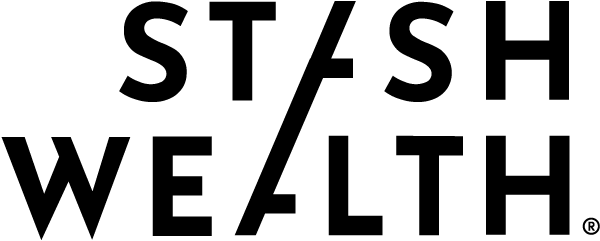So your company won’t let you use a robo-advisor
Banks, consulting firms, endowment funds, the list goes on when it comes to employers who require non-discretionary investment management. In layman’s terms, it means you can’t pick you own investments and you certainly can’t use a roboadvisor. So what’s the other option?
Two out of every five Millennials/Gen Z use a robo-advisor. So the odds of you at least having encountered a robo-advisor are high. And even higher if you’re looking for the smartest thing to do with your money in the bank.
Which puts you in between a rock and a hard place when you’re extended a job offer from a prominent institution (most likely one of the Big Four** if you’re reading this post) that doesn’t allow its employees to use a robo-advisor.
Hi. This is why we’re here. And we’re on very few approved lists. Probably because we curse too much. So we’re speaking from a completely unbiased perspective. If your company won’t let you use a robo-advisor, this is what you should look for.
Alternatives to a robo-advisor
So you’ve decided to join one of the absolute powerhouses in the accounting realm (Deloitte, KPMG, PWC, or EY). Maybe you work in consulting. Maybe you’re now involved with the government. Whatever. We’ve seen it all.
You’re probably in a position where you have to report any and all financial relationships. And more often than not, you'll have to transfer your money if the advisor you're using isn't on a pre-defined, pre-approved list. So how do you find the best option for you?
The best option is a financial advisor. Also happens to be your only other option in this position. But we’re going to tell you exactly what to look for in a financial advisor so that you don’t just settle for whoever your father is using.
What to look for in a financial advisor
The most important things to look for in a financial advisor are 1) whether or not that advisor is a fiduciary and 2) whether or not that advisor understands your pain points as a 20-30something. A lot of Google searches will tell you the most important things to look for when selecting a financial advisor is that they are a fiduciary that they have their CFP accreditation. But there should be an asterisk on the CFP part. Let’s break down what each of these mean and what you should look for in each.
What is a fiduciary?
A fiduciary is someone who puts your best interest first, regardless of what they receive in return. The reason this is so important in financial services is because some advisors have the ability to get kickbacks or commissions based on which solutions (investments) they propose to their clients. And as a client, we believe you should feel comfortable that there are ZERO conflicts of interest behind the advice you’re receiving.
What is a CFP?
The CFP® (Certified Financial Planner) accreditation is great for advisors whose clients are about to retire. But when your questions about money extend past knowing you’ll be able to retire one day, the CFP curriculum doesn’t do much to help those serving HENRYs [High Earners, Not Rich Yet]. Therefore, we believe it's not imperative for young people to choose an advisor with a CFP, but it is a nice accreditation to have.
The benefits of using a financial advisor over a roboadvisor
A roboadvisor is a great place to get your feet wet. But when it comes to personal finance, it’s personal - technology should support the conversation, not replace it. A financial advisor has the ability to answer questions you didn’t even know you had, to hold you accountable, to create a relationship with you, and to help you through every curve ball life throws your way. Because if there’s anything constant in life, it’s change. Drake said that. Or maybe it was Heraclitus. But Drake probably quoted him.
So when the conversation between you and your partner gets a little deeper than how to split the bar tab, or maybe you’re about to get married, or you just got promoted. Now is the time to call in the professionals. Grab a hold of your company’s approved advisor list and feel confident as you start interviewing because you know exactly what you’re looking for in the person you work with.
And if Stash Wealth is on your company’s approved list, we’d love to help you. Our planning process is called the Stash Plan. You are paired with a financial advisor and within 5-6 weeks, you walk away with an entire game plan for your financial life. No strings attached.
**some rules and regulations and their enforcement can vary based on seniority or title within the company.
Stash Wealth provides financial plans designed to assist high earning young professionals build and manage their wealth.
Stash Wealth offers a pragmatic approach to financial planning and wealth management. Whether saving up for Tahiti or a Tesla, we help you achieve your short-term and long-term goals.
Written by Stash Wealth Staff Writer
Stash Wealth Staff Writers are knowledgeable about personal finance topics. Their objective is to unravel the complexities of finance trade jargon, products, and services in order to equip HENRYs with a sound understanding of financial matters.

